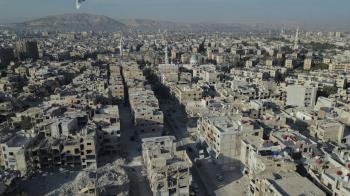Alwaght- Eid al-Adha , Festival of the Sacrifice, is one of the greatest feasts of Islam which Muslim holidays celebrated worldwide each year. According to Islam, this is the day on which, the divine command for prophet Ibrahim (a) to sacrifice his son, Isma'il (a), was issued. He took Isma'il (a) to an altar and was about to fulfill the divine command when angle Gabriel came down with a ram and Ibrahim (a) sacrificed the ram instead. The traditional rite of offering sacrifice on Eid al-Adha in the desert of Mina, is a commemoration of that event. Muslims, who go to Hajj, perform the rituals of Mina, including offering a sacrifice.
In the Islamic lunar calendar, Eid al-Adha falls on the 10th day of Dhu al-Hijjah and lasts for three days. In the international calendar, the dates vary from year to year drifting approximately 11 days earlier each year.
There is a lot of emphasis on performing acts of worship on the eve and day of Eid al-Adha. Also, observing a vigil and spending the night in prayer and worship is specially recommended. On the day, rituals like: ghusl (religious shower), the Eid Prayer, offering sacrifice are recommended. Like Eid al-Fitr, fasting on Eid al-Adha is forbidden.
This Eid is one of the official holidays in Islamic calendar. In all Muslim countries, the Eid itself— and sometimes the following days up to one week— are official holidays and various public ceremonies are held to celebrate the Eid.
Eid al-Adha celebrations start at the same time as the annual Hajj in Mecca.
According to Islamic tradition, the valley of Mecca (in present-day Saudi Arabia) was a dry, rocky, and uninhabited place. Allah instructed Abraham (a) to bring Hagar, his wife, and Ishmael to Arabia from the land of Canaan.
As Abraham (a) was preparing for his return journey back to Canaan, Hagar asked him, "Did Allah order you to leave us here? Or are you leaving us here to die?" Abraham did not even look back. He just nodded, afraid that he would be too sad and that he would disobey Allah. Hagar said, "Then Allah will not waste us; you can go".
Hagar ran up and down between two hills, al-Safa and Al-Marwah, seven times, in her desperate quest for water. Exhausted, she finally collapsed beside her baby Ishmael (a) and prayed to Allah for deliverance. Miraculously, a spring of water gushed forth from the earth at the feet of baby Ishmael (a).. With this secure water supply, known as the Zamzam Well, they were not only able to provide for their own needs, but were also able to trade water with passing nomads for food and supplies.
Years later, Abraham (a) was instructed by Allah to return from Canaan to build a place of worship adjacent to Hagar's well (the Zamzam Well). Abraham (a) and Ishmael (a) constructed a stone and mortar structure – known as the Kaaba – which was to be the gathering place for all who wished to strengthen their faith in Allah. As the years passed, Ishmael (a) was blessed with nubuwwah (prophethood) and gave the nomads of the desert his message of submission to Allah. After many centuries, Mecca became a thriving desert city and a major center for trade, thanks to its reliable water source, the Zamzam Well.
One of the main trials of Prophet Abraham's life was to face the command of Allah to sacrifice his dearest possession, his son. The son is not named in the Quran, but Muslims believe it to be Ismail (a).
Upon hearing this command, Abraham prepared to submit to will of Allah. During this preparation, Shaitan (the Devil) tempted Abraham and his family by trying to dissuade them from carrying out Allah's commandment, and Abraham (a) drove Satan away by throwing pebbles at him. In commemoration of their rejection of Satan, stones are thrown at symbolic pillars during the Stoning of the Devil during Hajj rites.
When Abraham attempted to sacrifice his son and fulfill the divine command, angle Gabriel came down with a ram and Ibrahim (a) sacrificed the ram instead. The Prophet had passed the test by his willingness to carry out Allah's command.
This is mentioned in the Quran times and again.
Abraham (a) had shown that his love for Allah superseded all others: that he would lay down his own life or the lives of those dearest to him in submission to Allah's command.



























